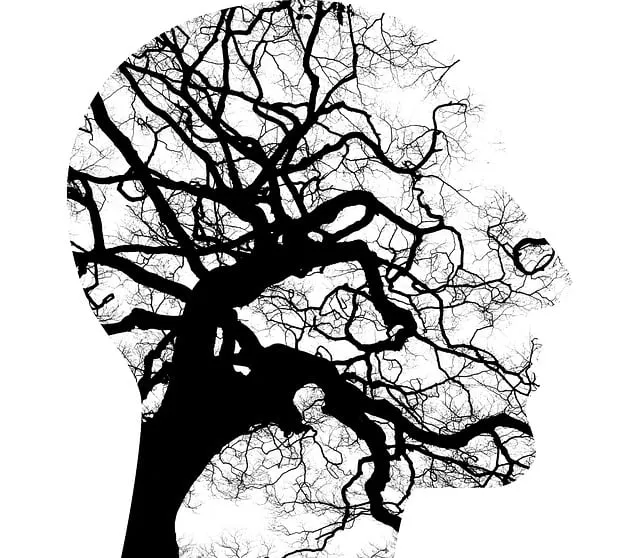Arvada Kaiser Mental Health Programs provide comprehensive workshops focused on mood regulation and emotional well-being. Through cognitive techniques like CBT, mindfulness practices, self-care routines, and lifestyle adjustments like exercise and mindful eating, their evidence-based strategies help individuals manage stress, reduce stigma, and build resilience. Tailored crisis intervention and supportive communities foster better mental health outcomes for all users.
Mood regulation is a vital aspect of emotional well-being, and mastering it can significantly enhance our quality of life. This article explores various strategies to navigate and stabilize moods, offering a holistic guide for better emotional balance. From understanding the fundamentals of mood regulation to implementing effective cognitive techniques and lifestyle adjustments, we delve into proven methods. One notable approach is highlighted: the comprehensive Arvada Kaiser mental health programs, renowned for their impact on fostering resilience and managing emotions effectively.
- Understanding Mood Regulation: Unraveling Emotional Balance
- Arvada Kaiser Mental Health Programs: A Comprehensive Approach
- Cognitive Techniques for Effective Mood Management
- Lifestyle Adjustments: Nurturing Emotional Resilience
Understanding Mood Regulation: Unraveling Emotional Balance

Understanding Mood Regulation is a fundamental aspect of emotional well-being. At Arvada Kaiser Mental Health Programs, we recognize that achieving and maintaining emotional balance is a crucial part of overall health. Our programs are designed to help individuals unravel the complexities of their emotions, providing them with effective strategies for mood regulation. By promoting positive thinking and empathy building, our workshops foster an environment where participants can learn stress management techniques tailored to their unique needs.
Through these comprehensive programs, we equip individuals with tools to navigate life’s challenges more effectively. Whether it’s incorporating mindfulness practices or leveraging the power of self-care routines, our strategies empower people to take control of their emotional states. By understanding and managing moods, individuals can enhance their resilience and improve their overall quality of life.
Arvada Kaiser Mental Health Programs: A Comprehensive Approach

Arvada Kaiser Mental Health Programs offer a comprehensive approach to addressing various mental health concerns. These programs recognize that mood regulation is a multifaceted process and thus provide tailored interventions. One key component is the focus on mental illness stigma reduction efforts, aiming to create a supportive environment where individuals feel comfortable seeking help. By educating communities and promoting understanding, these programs break down barriers often associated with mental health issues.
Additionally, Arvada Kaiser incorporates evidence-based practices such as mindfulness meditation and self-care practices. These techniques empower individuals to manage their mood effectively by fostering resilience, self-awareness, and emotional balance. Through group sessions, workshops, and individualized support, the programs enable participants to develop coping strategies that are both sustainable and accessible in their daily lives.
Cognitive Techniques for Effective Mood Management

Cognitive Techniques for Effective Mood Management play a pivotal role in mental health programs offered by Arvada Kaiser. These techniques empower individuals to understand and alter their thought patterns, thereby influencing emotional states. By identifying negative or distorted thinking, one can challenge and reframe these thoughts, leading to improved mood regulation. For instance, cognitive-behavioral therapy (CBT) is a well-known method that teaches individuals to recognize unhelpful cognitive distortions and replace them with more balanced perspectives.
The process involves developing coping skills that enable people to navigate challenging situations with resilience. This includes learning techniques for stress reduction, such as mindfulness and relaxation exercises, which can significantly boost confidence and help in managing crises. Arvada Kaiser’s comprehensive programs guide individuals through these strategies, offering crisis intervention guidance tailored to their unique needs, thereby fostering better emotional well-being.
Lifestyle Adjustments: Nurturing Emotional Resilience

In the context of mood regulation strategies, lifestyle adjustments play a pivotal role in nurturing emotional resilience. Programs like those offered by Arvada Kaiser Mental Health focus on holistic approaches that integrate physical and mental well-being. Simple yet effective changes such as regular exercise, mindful eating habits, adequate sleep routines, and the practice of relaxation techniques can significantly influence one’s emotional state. These adjustments not only help individuals manage stress but also build a robust foundation for coping with life’s challenges.
Moreover, effective risk management planning for mental health professionals is crucial. By integrating Stress Reduction Methods and enhancing Communication Strategies, professionals can better support their clients. These practices enable practitioners to foster secure therapeutic environments, where individuals feel heard, understood, and empowered to regulate their moods effectively. Such a supportive ecosystem paves the way for positive outcomes in mental health management.
In conclusion, achieving emotional balance is a multifaceted journey. From understanding mood regulation to adopting cognitive techniques and lifestyle adjustments, individuals can effectively manage their moods. The Arvada Kaiser mental health programs offer a comprehensive approach, integrating various strategies to foster emotional resilience. By combining these methods, folks can navigate life’s challenges with greater ease, ensuring a brighter and more balanced future.






